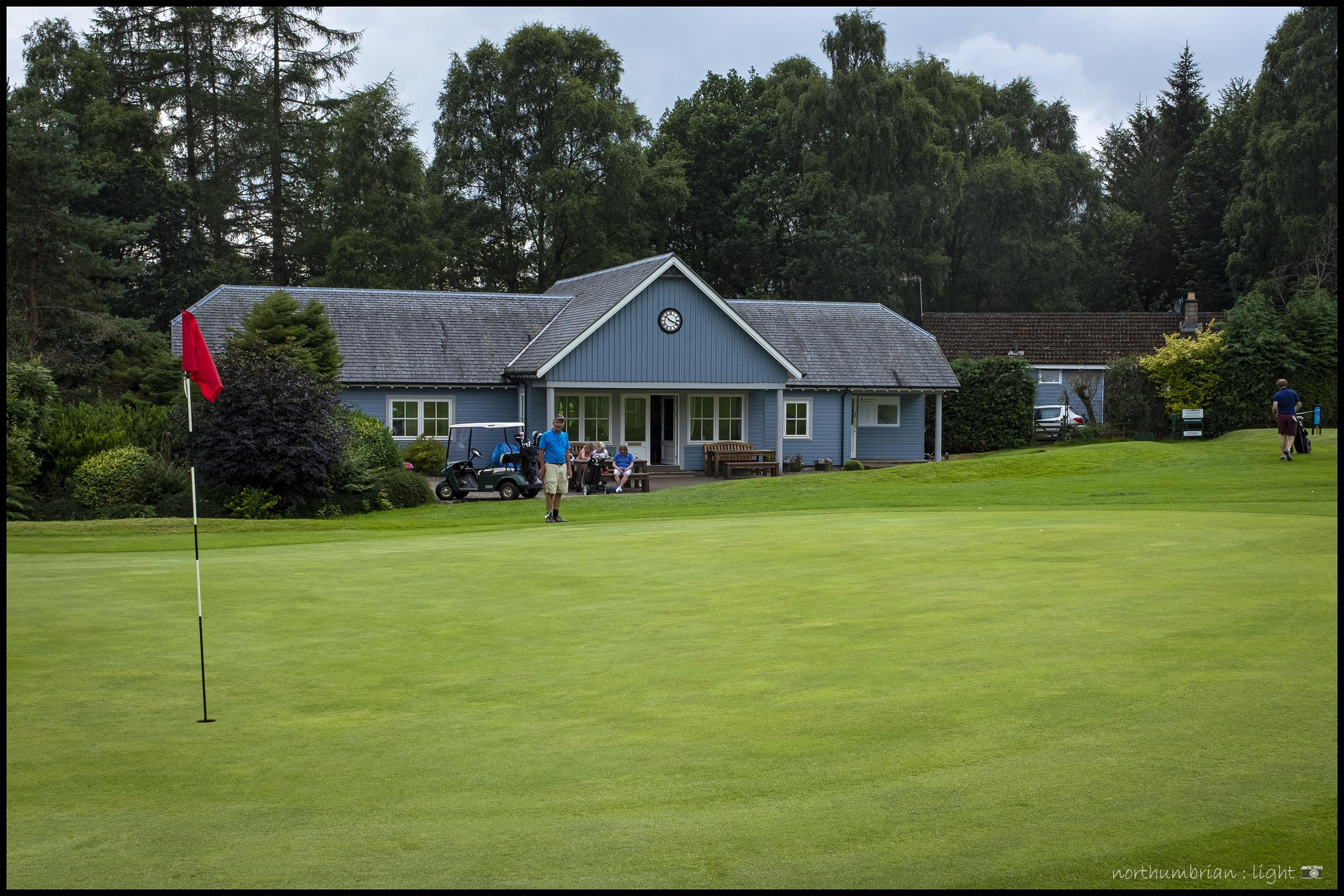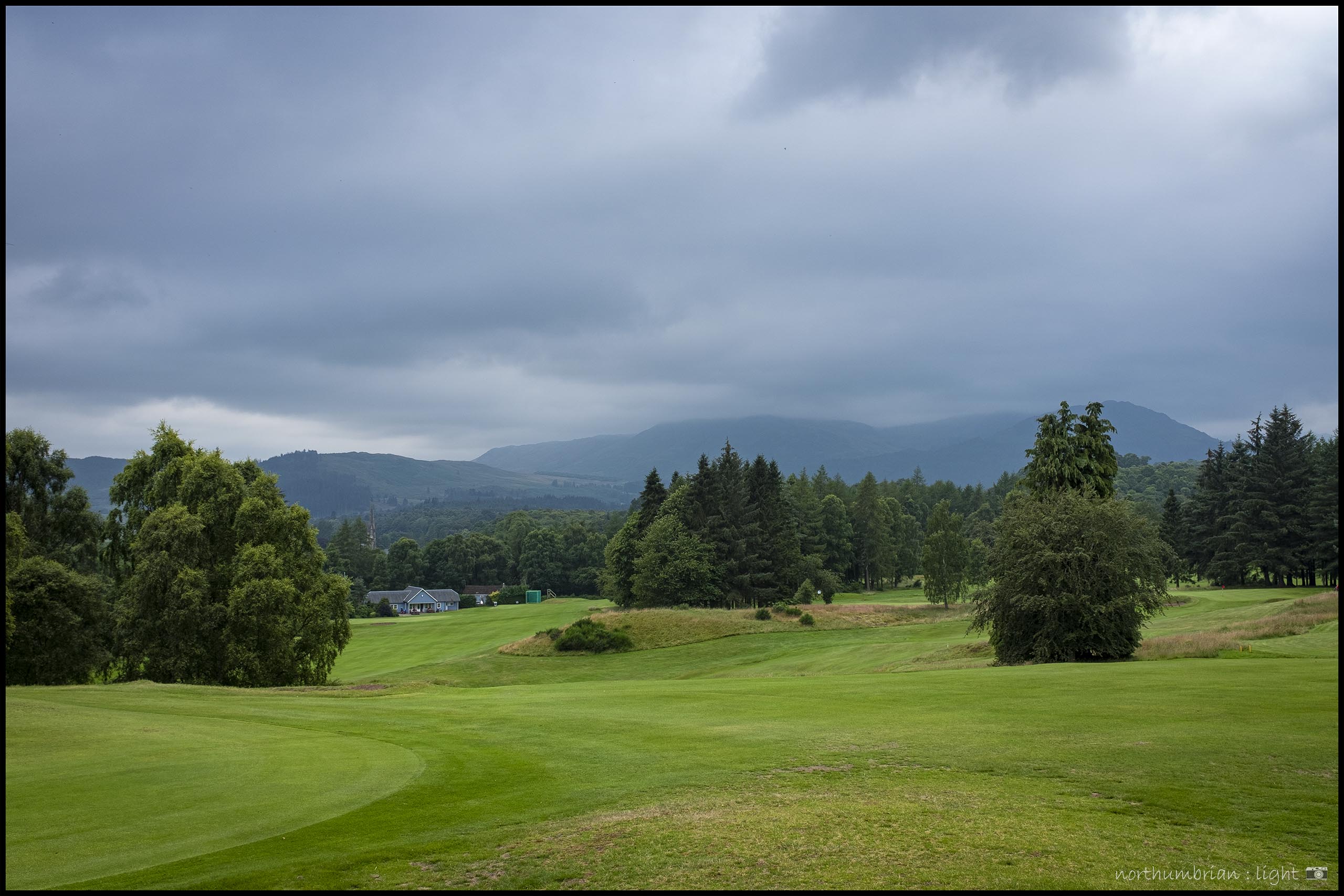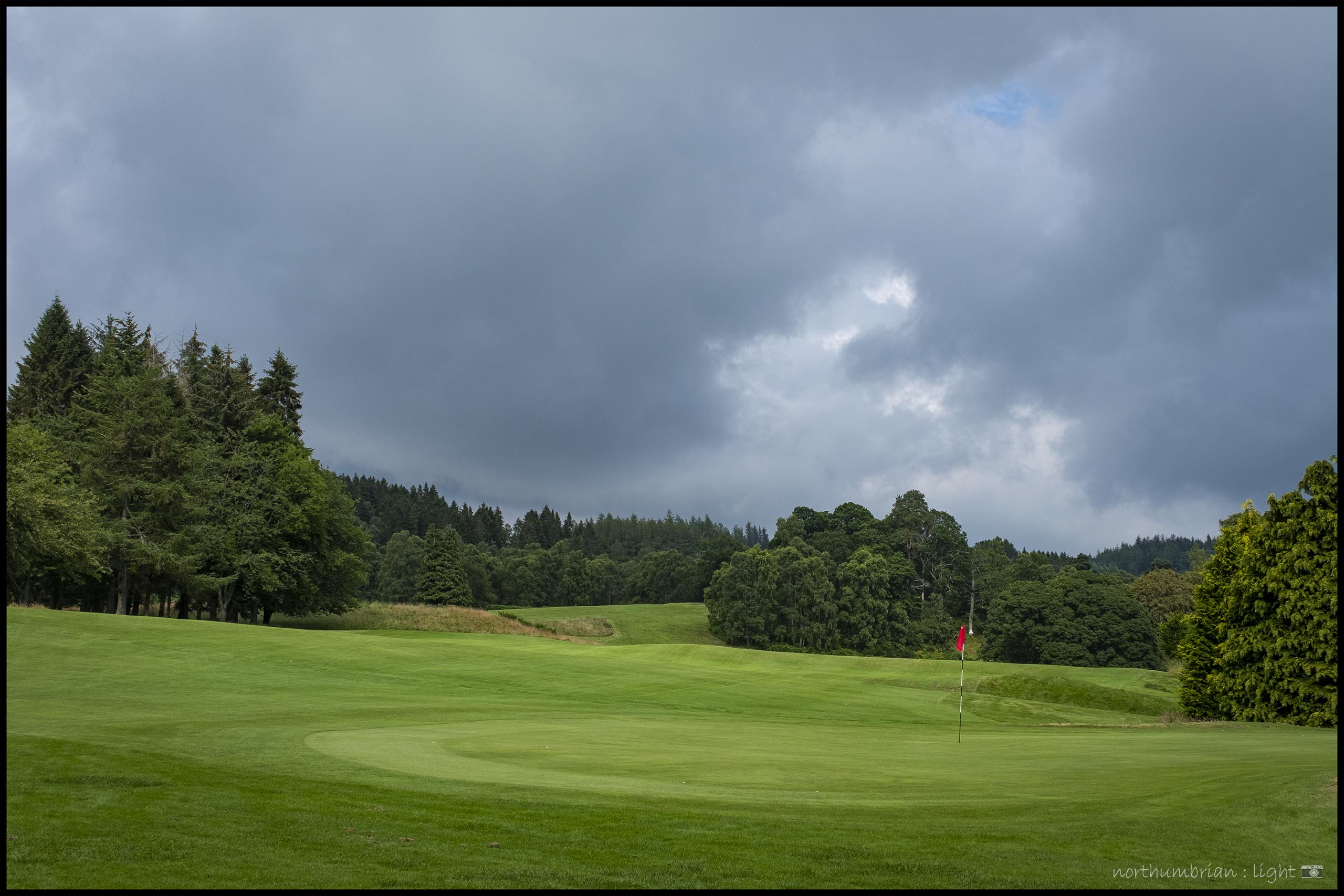I have just returned from the annual pilgrimage to Traigh for their Open on 27th July. It is a long way to go for a strokeplay competition and then come to grief at the second, so I was delighted that the club agreed to run a parallel Stableford competition. I supplied the ‘silverware’ and the inaugural Golf in the Wild competition was won by local player, Peter Fleming. My middle-order performance of net 72 and 33 points at least had the merit of not being a ‘no return’. It is always a delight to play at Traigh and this year was no exception, despite the drizzle and threatening clouds. Eigg, Muck and Rum remained out of sight for much of the day.
The weather at Killin on the way up was glorious by comparison and it was good to be back playing this splendid course, the original inspiration for Golf in the Wild. That was Friday, the Traigh Open was on the Saturday, so it was inevitable that we should find somewhere to play on Sunday’s return leg. With time running short, we pitched up at Comrie Golf Club for nine holes and what a splendid nine holes they were. This small course announces itself like no other I know. The New England style clubhouse squats among tall trees and the finely presented 9th green – it is picture-perfect. I had called in once before but, busy competition tees prevented me from turning out and it was this sight of the clubhouse and its surroundings which made me want to return. Would the course disappoint after the excellent first impressions – it did not.
The course is approached by a single track off the A85, adjacent to the village cricket ground with a suitably aged pavilion – the cricket club was founded in 1908, seven years after the golf club. On the day we arrived. a fair was in full swing with children bouncing on ‘Sammy the Snake’ while a Tannoy system was in full flow, broadcasting indecipherable announcements to the assembled masses. It would provide the soundtrack to our round.
The first, Betty’s Knowe, is a middle-distance, blind par 4 at 320 yards off the yellows, from a tee adjacent to the clubhouse. The second shot is also potentially blind into a tight green protected by trees on the left at the lowest level of the course. From here, the fairways tack their path diagonally up the slope towards Laggan Wood, the high point of the course being 160 feet above the first green. The easiest hole, Cauldron, the second, is a par 4 and while relatively short at 238 yards, the front bunkers are likely to catch the unwary. Quarry, the third and a par 3 would be straightforward but for the mountainous rough in front of the tee. Clear this and the elevated green runs straight and true. The fourth, The Pines, would be a no-nonsense 355 yard par 4, were it not for the aforementioned pines which stand too close and to the right of the tee box – negotiate these and it is an uphill drive to another elevated green. I managed a two-putt from off the back of the green so they must be of excellent quality. From the front of the green, there is an excellent view back to the clubhouse, a visual confirmation of just how far you have already climbed.
Above the 4th green is the tee for the par 3 5th, Happy Valley. An uphill drive into another elevated green protected by bunkers left and right, the degree of happiness to be derived from this hole being dependent on missing the sand traps. Another wonderful vista opens out once the 2-putt successfully finds the dark recesses of the hole. My golfing buddies were mightily impressed to see Lord Melville’s Monument on the distant tree covered horizon. Henry Dundas, 1st Viscount Melville was the first Secretary of State for War and became the last person impeached for misappropriation of public money while in office. The monument is unique in its commemoration of a convicted felon – many a 21st century banker will take heart:
The appropriately named 6th, Monument, takes you, in three drives if you are good – two if exceptional, to the top corner of the course. A par 5 with a tight approach, anything right is blocked about by trees although one of our party proved it possible with a high pitch and two putt for a solid par. The seventh, Pulpit, is one fine drive to a sloping fairway, 120 feet below – left there is rough and trees but right, if you are long enough, is the relative safety of the 8th fairway. My natural tendency to ‘fade’ the ball found me on said fairway in the company of four ladies from North Berwick – my pin high shot to the 7th green, leaving a birdie putt from five feet would have impressed, had they bothered to look. My inevitable two-putt was less impressive. Two par fours, Johnnie’s Corner and Coney Hill complete a thoroughly enjoyable round. The test of a good course is ‘can I remember all the holes‘ and on this course the answer is a definite ‘yes‘ – every drive, every putt, every moment taken to admire the view leaves an enduring impression. I will be back.



